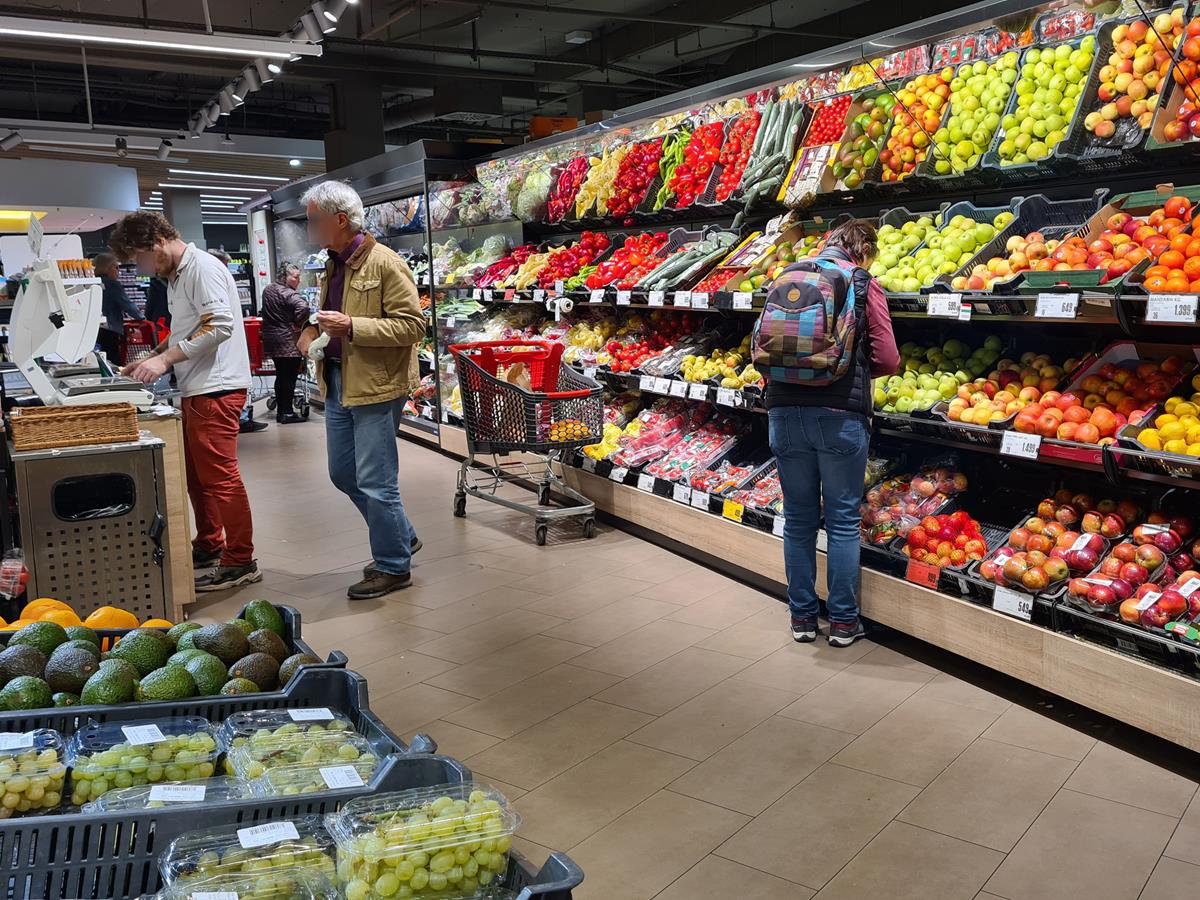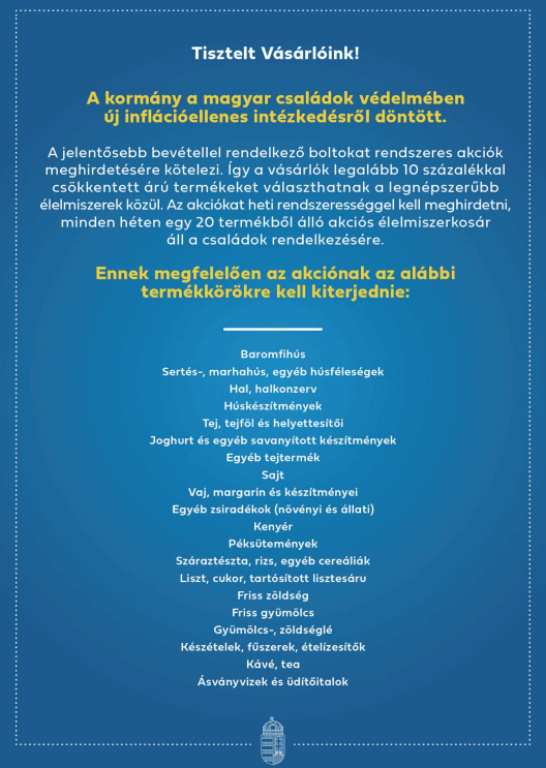New details emerged about the compulsory price reductions in Hungary

A ministerial decree about how to implement the government’s compulsory price reduction appeared in the Hungarian National Gazette on Friday evening. The scheme will kick off on 1 June, and the document defines how the retailers should inform the customers about the compulsory price reductions.
We wrote before that shopping in Hungary will considerably change from 1 June. That is when the government’s new scheme concerning a compulsory price reduction on several different types of foods will start. Why is that needed? Because the food price rise rate is one of the highest in Hungary in the world and the highest in the EU.
Compared to last year, the average price increase reached 40-50 percent in the case of bread, milk, butter and other basic foodstuffs. The government would like to reduce the social consequences by making it compulsory for the big supermarkets to announce price reductions concerning several food types. According to portfolio.hu, the government’s latest measure will last until 30 September. It concerns stores above 200 sqm. Therefore, Lidl, Aldi, Penny, Tesco, Spar and other supermarket chains will apply it.
Last year, the government introduced food price caps on certain products (sugar, sunflower oil, milk, flour, chicken breast and pork leg). The Orbán administration hoped that the measure would ease the burden of food price inflation, but experts agree the scheme resulted in the price rise of other popular foodstuffs. For example, butter and cheese. However, the government decided to uphold it until at least 30 June.
Concerning the compulsory price reductions, the new decree prescribes the following information sheet for each shop. It contains that the Hungarian government decided to introduce the scheme to protect the Hungarian families. The stores will need to reduce prices by at least 10 percent, in the case of 20 food product types. Those are the following:
poultry, pig, beef and other kinds of meat, fish, canned fish, processed meat products, milk, sour cream and replacements, yoghurt and similar products. Furthermore, supermarkets will have to reduce the price of cheese, butter, margarine, vegetable oils and animal fats, bread, pastries, cereals, flour, sugar, fresh vegetables and fruits, vegetable and fruit juices, convenience foods, spices, seasonings, coffee, tea, mineral water and soft drinks.
Here is the poster, which will have to be displayed in A4 size (210 × 297mm) in each Hungarian supermarket (and on its website):

The government blames external reasons for the soaring food price inflation. But experts say some of their measures e.g. the aforementioned food price caps, the different excess profit and other taxes could play a crucial part in it. The biggest losers of the period were small rural shops. The latest data show their number decreased by 4,500. But this is not the last measure affecting our shopping habits in Hungary. The government will introduce an online price monitoring system on 1 July. We wrote about that HERE.
Source:



